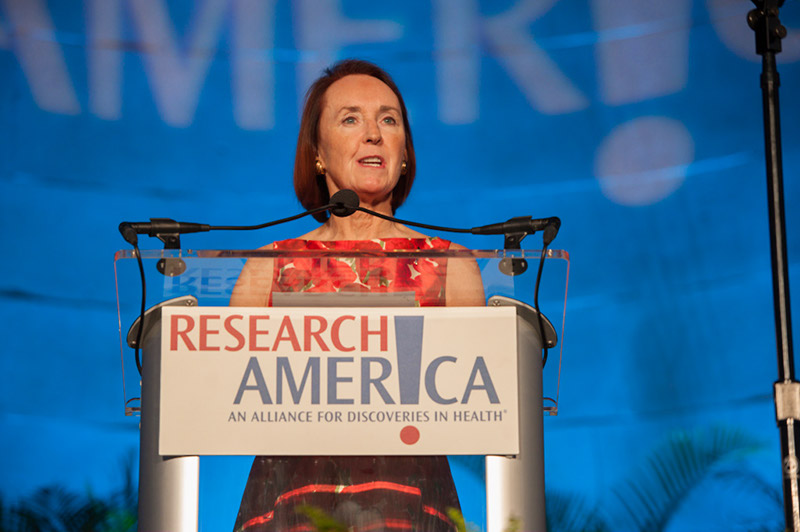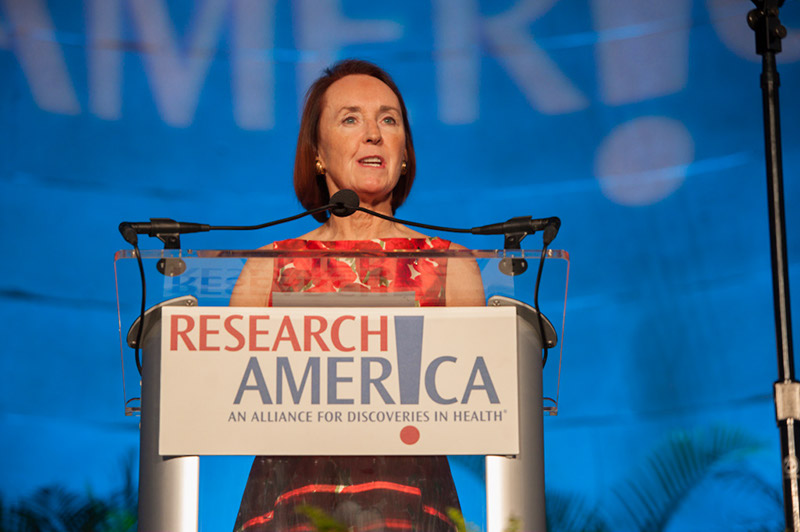Before and After the 4th of July

 Dear Research Advocate,
Dear Research Advocate,
House leaders will likely act soon after the July 4 recess to pass an FY18 budget resolution. No word on when the Senate might act. Reportedly, the House budget resolution would instruct appropriators to spend more on defense than in FY17, significantly more, in fact, than is allowed under the defense “sequestration cap” established by the 2011 Budget Control Act (BCA). In contrast, non-defense discretionary (NDD) spending would be limited to a level at least $5 billion below the NDD budget cap.
This increase in defense and decrease in NDD spending is actually more “moderate” than the $54 billion reallocation proposed in the president’s budget. And neither the president’s budget nor the spending limits included in budget resolutions have the force of law. At the end of the day, Congress cannot appropriate above the BCA caps without a change in law. Still, the House budget resolution is the clearest evidence yet that NDD priorities like science funding are once again at risk.
The silver lining (albeit so thin that you have to squint to see it) is that if the House and ultimately the Senate budget resolution acknowledge the need to lift the BCA cap on defense spending, that might set the stage for bipartisan budget negotiations to lift the NDD cap as well. As I mentioned last week, Senator Cornyn (R-TX) has said that he hopes “cooler heads” prevail, leading to a deal that raises both budget caps. And this week, Senate Democratic leaders sent a letter echoing the call for lifting both caps. Help us reinforce the need for sequestration relief. More than 200 organizations have signed on to our letter making the case…last call to sign on! Email Rachel Weissman ([email protected]) by COB Friday.
Earlier this afternoon, the House Commerce, Justice and Science (CJS) subcommittee marked up and advanced their FY18 bill, which included $7.3 billion for NSF; $133 million below FY17 levels. This is a further reason why we need a bipartisan budget deal that lifts the sequestration caps. The House Agriculture subcommittee held their FY18 markup this week as well. The bill, which passed the subcommittee, includes $2.8 billion — flat funding — for FDA. (Again: budget deal needed). The draft also includes $5.2 billion in user fees, which rejects the president’s proposed doubling of those fees.
Speaking of user fees, during a meeting with our alliance members this week, majority and minority staff from the House Energy and Commerce Committee agreed that Congress is on track to meet the July 30 deadline for passing the FDA Reauthorization Act (FDARA). With thanks to FDA expert Steven Grossman for valuable input, here is a quick cheat sheet on FDARA. We also had a chance to talk to E&C staff about 21st Century Cures implementation, the indirect cost issue, the president’s NIH restructuring proposals, and future hearings the Committee might consider. If you are a Research!America member and did not receive a summary of the meeting, email Sara Chang ([email protected]) for a copy of the notes.
As I’m sure you are aware, Leader McConnell (R-KY) has postponed consideration of the Senate repeal/replace bill until after the July 4 recess. Among the many controversial issues swirling around the bill, one has received far less attention than it deserves: proposed repeal of the Prevention and Public Health Fund (PPHF). Last Friday, former CDC Director Tom Frieden took to CNN to discuss the crucial importance of this fund. Now it’s your turn to weigh in!
Another postponement: Senate HELP Committee Chairman Lamar Alexander (R-TN) is delaying a series of drug pricing hearings until he perceives “a more bipartisan attitude.”
As we approach the 4th of July holiday, half-way through this politically tumultuous year, I think many would agree that a little bipartisanship, coupled with a dose of civility, would go a long way right now. In the words of former Research!America Whitehead award winner Senator Orrin Hatch (R-UT), “we must resist the impulse to frame every tiny policy disagreement as a zero-sum struggle for the soul of the country…Only by doing so can we look beyond the horizon of our differences to find common ground.” Well said, Senator!
Sincerely,
Mary Woolley




